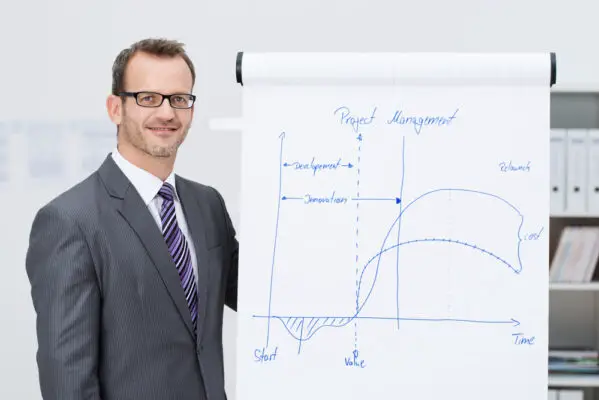Remote senior project manager jobs are becoming increasingly popular as companies embrace remote work and seek highly skilled professionals to oversee their projects.
These roles typically involve leading cross-functional teams, developing project plans, setting project goals and objectives, monitoring progress, and ensuring projects are timely and within budget.
Senior project managers are also responsible for managing stakeholders, mitigating risks, resolving issues, and communicating project updates to key stakeholders.
The remote nature of these positions allows professionals to work from anywhere, providing flexibility and the opportunity to collaborate with teams across different locations and time zones.
Additionally, remote senior project manager roles often offer competitive salaries and benefits packages, making them attractive for experienced professionals seeking challenging and rewarding project management positions.
As the modern business landscape evolves, so too does the nature of performance in key roles such as Senior Project Manager. An immediate epitome of this change is the growing popularity and acceptance of remote work setups.
This article extensively explores the Remote Senior Project Management world, articulating its operation’s raw fundamentals and refined intricacies.
You will gain insight into the deep and demanding responsibilities of the role, the current market status, and how to tread the path of transitioning toward it.
Packed with strategies to ace this challenging yet rewarding role, this article aims to equip aspirants with the right tools to thrive in this new era of work.
Understanding Remote Senior Project Management Role
Role of a Remote Senior Project Manager
A Remote Senior Project Manager is fundamentally responsible for leading and managing a team to complete a project from start to finish successfully.
This includes defining project scope, timeline and deliverables and aligning them with company strategies and expectations.
They are also responsible for creating and managing a detailed project schedule and coordinating the project staff’s activities.
Furthermore, they are expected to monitor project deliverables and ensure all projects are delivered on time and within budget and scope.
An inherent part of the role is risk and issue management, which involves identifying potential issues, troubleshooting, and providing solutions to mitigate any kind of risk to the project. Regular reviews and reports are another aspect of their job description.
Working Remotely as a Senior Project Manager
The key difference between a traditional Senior Project Manager and a remote Senior Project Manager is the geographic dispersion of their team.
While working remotely, video conferencing, project management software, and real-time communication tools can facilitate clear and open communication.
Time zone differences and scheduling conflicts must be considered when planning online meetings.
As the team leader, the remote Senior Project Manager will need to foster a sense of cohesion and morale within the virtual team, encouraging collaboration and team spirit to keep motivation high.
Necessary Skills for a Remote Senior Project Manager
The skillset required for a remote Senior Project Manager is largely similar to that of a traditional Senior Project Manager. Still, the remote nature of the job does demand some additional competencies.
For instance, strong virtual communication skills are crucial, including effective writing skills for clear, concise digital communication. Proficiency with remote tools and platforms for collaboration and productivity is essential.
Remote project managers must be self-motivated, highly organized, able to work independently, and capable of managing remote teams.
Problem-solving skills are especially important for managing challenges arising from remote operations.
Emotional intelligence, the ability to read and respond effectively to team members’ emotional states, is critical when managing virtually.
A solid understanding of diversity and inclusion is key to effectively managing a global remote team.
Impact on the Job Market
In the wake of the COVID-19 pandemic, businesses worldwide were forced to transition to remote work, sparking a surge in the demand for remote project management roles.
Long-established traditions of in-office work began to evolve as organizations saw the advantages of remote work, such as cost savings on office space and the ability to tap into talent beyond their geographic reach.
As businesses persistently tweak their work models to suit our ever-changing world, the need for remote Senior Project Managers is predicted to continue upward.
This remote working trend opens up new opportunities for professionals to take on high-level positions without the burden of relocation, thereby widening employers’ talent pool while increasing job prospects for individuals desiring such positions.

The Market for Remote Senior Project Manager Jobs
Understanding the Remote Senior Project Manager Job Market
There has been a noticeable shift in recent years, specifically driven by the global pandemic, making remote work a common standard.
A Senior Project Manager working remotely in today’s market can anticipate an annual average salary ranging from $105,000 to $130,000, as reported by Payscale.
However, earning potential can vary based on factors including the complexity of assigned projects, the industry sector, the company’s size, and the project manager’s level of expertise and experience.
The technology sector is currently at the forefront in hiring remote senior project managers.
As technology companies continue to grow and initiate new projects, the need for experienced project managers who can oversee and handle these endeavors from afar has become even more critical.
Software development, IT services, and telecommunications are among the sub-sectors with the most demand for this role.
E-commerce, healthcare, and financial services
are also industries showing a robust demand for remote senior project managers. In the healthcare sector, for instance, telehealth initiatives spurred by the pandemic have created a need for experienced project managers who can handle the complexities of remote healthcare delivery.
Financial services and e-commerce have seen similar trends due to the growth of digital banking and online shopping.
Geographically, remote senior project manager jobs
are available throughout the United States. However, areas with thriving technology, healthcare, and business services sectors, such as California, Massachusetts, New York, and Washington, have a notably higher demand for these roles.
Another aspect worth considering in the remote senior project manager jobs market
is the qualifications and skills required. Apart from the necessary project management certifications like Project Management Professional (PMP) or PRINCE2.
Companies often look for individuals with solid remote leadership skills, experience using project management software remotely, and the ability to navigate the challenges of managing a team from a distance.
The realm of remote work is evolving swiftly
Thanks to emerging digital business strategies and an increasing recognition of the advantages of remote work, companies are tapping into a nationwide pool of talent.
In the wake of this trend, we expect the demand for remote senior project managers to surge as more businesses launch and digitize their operations.

Transitioning to a Remote Senior Project Manager Role
Moving into a Remote Senior Project Manager Position
Senior Project Managers eager to shift to a remote context must rethink their management approach. The inherent challenges and opportunities of remote work make it a distinct ballgame.
Essentially, the task is the same—overseeing and guiding projects towards their goals, however, the way to accomplish this might need to be tailored according to the dynamics of a remote work environment.
Things to Consider When Transitioning to Remote Work
The first step in transitioning to remote work is assessing technical capabilities.
This includes having reliable internet and a suitable remote workspace and becoming fluent in using remote productivity and project management tools.
One may have to learn how to manage, share, and store files digitally since many traditional paper-based or in-person tasks are now online.
Communication is another crucial piece to consider. Without being able to interact in person, alternative modes of communication become more important.
Senior project managers should be comfortable with video conferencing, email communication, and instant messaging tools.
Potential Challenges
One potential challenge of remote work might be maintaining team cohesion. Without shared physical spaces, team members may feel disconnected or isolated.
Additionally, there might be complications due to varied time zones if the team is geographically dispersed.
Miscommunication can also potentially increase, as there is a slight loss of the nuance and non-verbal cues accompanying face-to-face interactions.
Productivity is another area that could see challenges. While some employees thrive in remote environments, others struggle with maintaining self-discipline or battling distractions at home.
As a remote leader, you’ll need to find ways to keep everyone motivated and productive.
Adapting and Excelling in Remote Project Management
To excel at managing remote teams, it’s essential to establish clear communication channels.
Regular virtual team meetings facilitate a shared understanding of goals and expectations and are crucial in maintaining team cohesion.
Conducting separate check-ins with individual team members can foster a closer relationship and promptly address any work-related concerns or issues.
The challenge posed by differing time zones can be mitigated by considering flexible working hours, allowing each team member to operate at their peak productive times.
Productivity can be ensured by setting definite expectations and deliverables for each team member. Utilizing project management tools can help with tracking progress and endorsing responsibility.
To truly shine as a remote senior project manager, constant learning and development are key.
This means keeping up to speed with the latest remote work developments, partaking in virtual leadership workshops, and continuously mastering new digital tools and software to streamline remote project management.
Ultimately, thriving in this role involves leveraging remote work’s unique opportunities and adaptability to ensure successful project execution.

Success Strategies for Remote Senior Project Managers
Cultivating Effectual Communication
Communication is a paramount facet of a remote senior project manager’s role. The competent transmission of project goals, tasks, and deadlines to the team is key in guaranteeing that the project remains on course.
Accomplished project managers employ various digital tools to enhance communication, including email, video conferencing, and project management software.
Moreover, they strive to make their communication transparent, concise, and sufficiently detailed to prevent misinterpretations and confusion.
Utilizing the Right Tools
In addition to communication tools, project managers often use task management and collaboration tools like Asana, Trello, or Slack, which allow for real-time updates and collaboration, ensuring everyone on the team is on the same page with project tasks.
Tools such as time-tracking software can also increase productivity and manage workloads effectively.
Familiarizing with the right technologies can make a significant difference in managing projects successfully.
Flexibility and Understanding
Unlike traditional office settings, remote work often involves members working from different time zones.
Understanding and flexibility can go a long way in building a successful remote team. This means being willing to revise deadlines when needed, being considerate of different time zones, and being available to offer guidance and support when required.
Building a Trustworthy Team
Building a reliable and trustworthy team that can work independently is another crucial success strategy for remote senior project managers.
This means putting in the extra effort to hire team members who are self-motivated, responsible, and trustworthy.
Once the team is established, fostering a strong bond through team-building activities can create a sense of unity and shared goals.
Regular Updates and Reporting
Regular team meetings, updates, and reporting are pivotal for keeping everyone on track and identifying potential bottlenecks or issues.
Regular updates will help team members understand what’s expected, the progression of the project, and how their work contributes to the overall project goals.
It’s also essential to have a system in place for creating and sharing project reports that all stakeholders in the project can understand.
Continuous Improvement and Learning
Finally, successful remote senior project managers understand the importance of continuous improvement and learning.
They consistently look for ways to enhance their project management skills, stay updated with the latest industry trends, and constantly review and learn from past projects.
This continuous learning and improvement approach helps them to stay ahead and ensures their effectiveness in a constantly changing remote work environment.

Conclusion
Ultimately, being a successful Remote Senior Project Manager dwells much on flexibility, effective communication, and sound management strategies.
When linked with the right digital tools, these elements can create a highly productive and harmonious virtual working environment where projects are delivered promptly and to a high standard.
Navigating the waters of remote leadership may seem daunting. Still, with the right understanding of the role, knowledge of the market, strategies for transition, and tested.
Success tips, as highlighted in this article, anyone with the right commitment can don the mantle of a Remote Senior Project Manager and shine in it.
Remember, the world is becoming increasingly connected; don’t let geographical limitations hinder your progress in your career journey.

Chris Ekai is a Risk Management expert with over 10 years of experience in the field. He has a Master’s(MSc) degree in Risk Management from University of Portsmouth and is a CPA and Finance professional. He currently works as a Content Manager at Risk Publishing, writing about Enterprise Risk Management, Business Continuity Management and Project Management.

